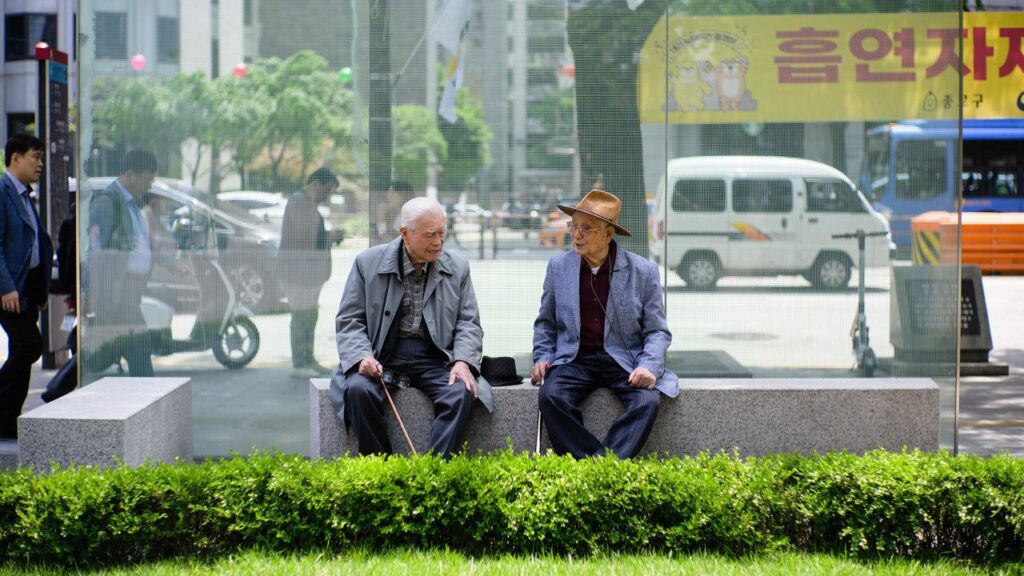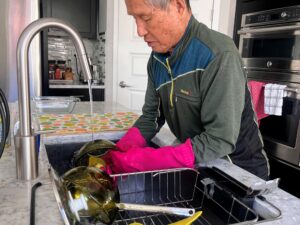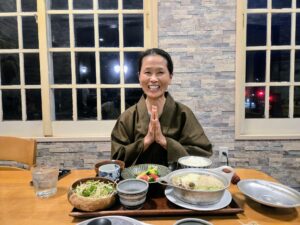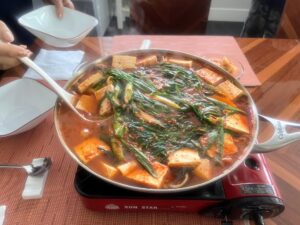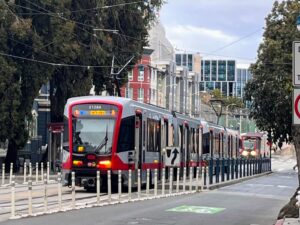Elderly care in South Korea is a vital part of the country’s social system. As the population ages, the government and communities have developed various programs to support older citizens. From healthcare services to financial assistance, these efforts aim to ensure that the elderly can live with dignity and comfort. In this post, we’ll take a closer look at how South Korea cares for its senior population and the services available to them.
Traditional Elderly Care in South Korea
In South Korea, traditional elderly care has always been deeply rooted in the culture. For many years, it was common for elderly parents and grandparents to live with their children. This practice, known as “filial piety,” is based on the belief that children should take care of their elders as they age. It is seen as a sign of respect to honor the sacrifices of older generations.
In this traditional system, the family played the central role in providing care. The children were responsible for meeting their parents’ daily needs, from food and shelter to emotional support. It was also common for family members to help with medical care, ensuring that the elderly had access to the health services they needed.
This way of living was not just about physical care but also about keeping the elderly involved in family life. The family respected elders for their age, seeing their presence as a source of wisdom and guidance. Their well-being was a priority for the entire family.
Although this traditional approach to elderly care has shifted over time, it remains a vital part of South Korea’s culture and continues to influence how society views and cares for its older population.
Elderly Care in Modern Korea
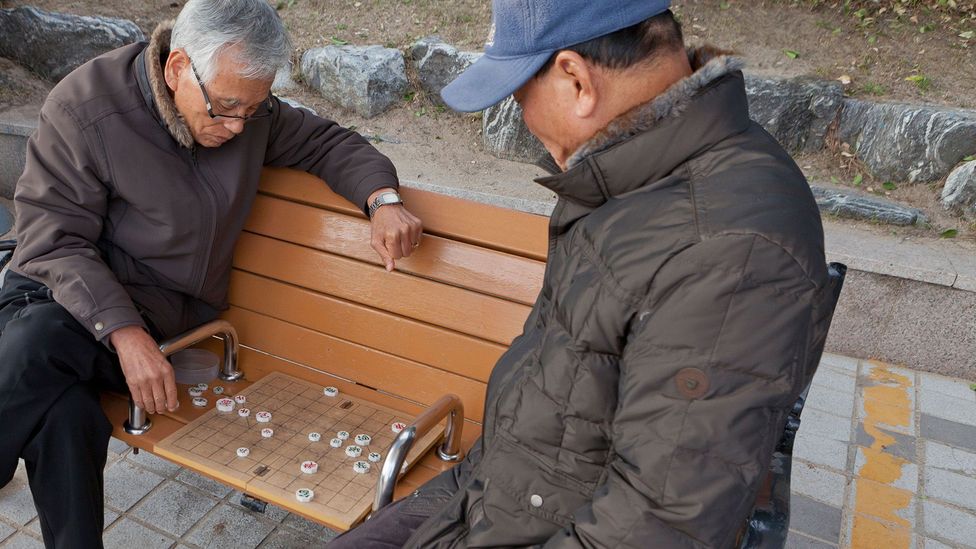
In modern-day South Korea, the approach to elderly care has evolved significantly. As more people move to cities and focus on their jobs, families find it harder to care for their elderly relatives full-time. Because of this, the government has stepped in to offer help and create systems to support older people.
Today, many elderly people live in nursing homes or senior care facilities, where they can receive professional medical care and daily assistance. These facilities ensure that seniors receive proper care, especially when their families cannot care for them at home. In addition to nursing homes, there are also government programs that provide financial assistance to help elderly people live independently in their own homes.
Although people still value family care, modern systems have become essential in meeting the growing needs of Korea’s aging population. The government continues to improve these services to ensure that older citizens can live healthy, comfortable lives with the support they need.
Community Support
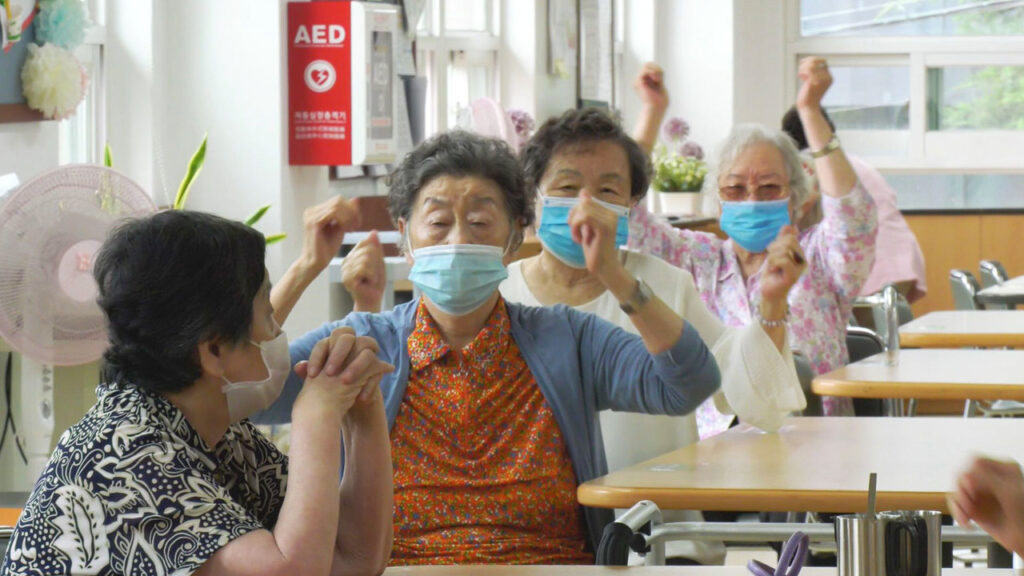
In South Korea, community support systems play a key role in elderly care, helping the elderly live independently and stay connected. Local governments offer various programs that provide assistance, such as home visits, transportation services, and meal deliveries. These programs help older people get the assistance they need without depending only on family for elderly care.
Community centers also offer activities and social events for seniors, encouraging them to stay active and engaged. These centers provide a space for elderly people to meet others, participate in hobbies, and stay mentally and physically healthy. This support helps prevent loneliness and ensures that older adults feel cared for within their neighborhoods.
Government Support for Elderly Welfare
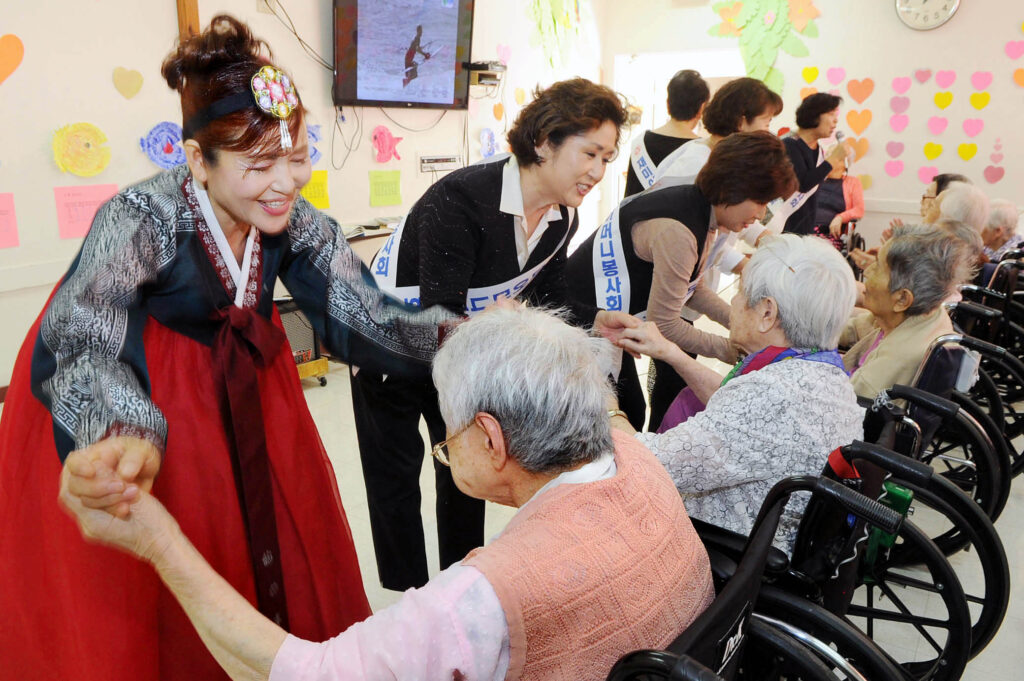
The South Korean government has implemented several initiatives to improve the welfare of its elderly population. One key program is the National Pension System, which provides financial support to seniors who have retired and are no longer working.
This pension helps ensure that elderly people have a steady income to cover their living expenses. Additionally, the government offers healthcare services, making sure that seniors have access to affordable medical care when needed.
To further support the elderly, the government has introduced policies that focus on providing better housing options and social services. These include subsidized senior housing and community-based services that make it easier for seniors to live independently. The government is continuously working to improve these initiatives as the aging population grows.
Challenges in Elderly Care
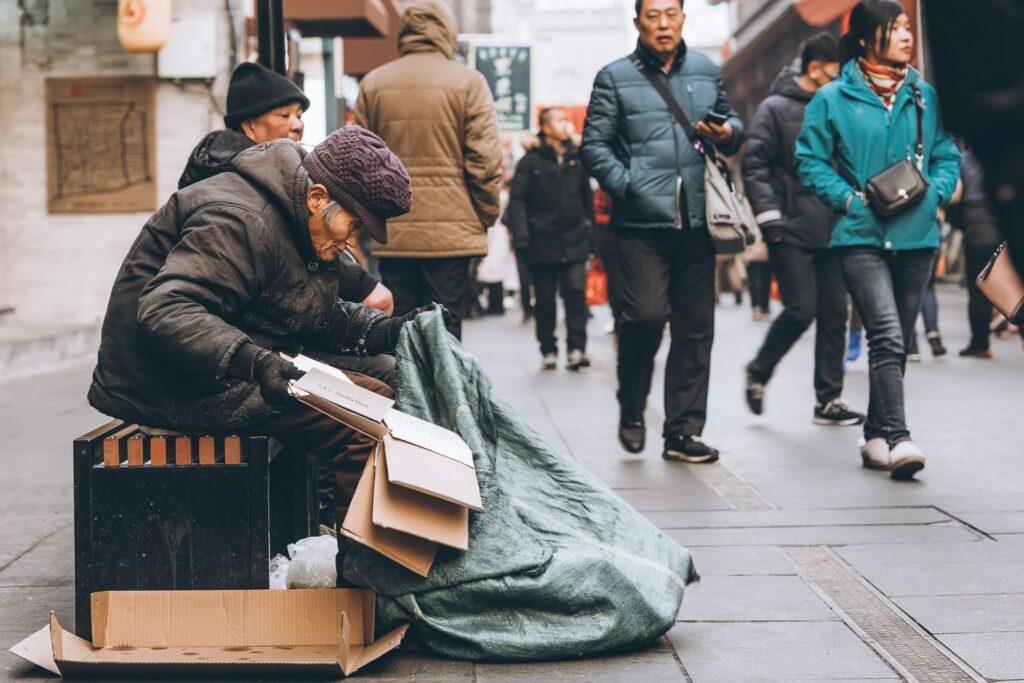
Despite the progress in elderly care, South Korea still faces some challenges. One of the biggest issues is the increasing number of elderly people who live alone. As more families move away for work, many seniors are left without the daily support of their children or relatives. This can lead to feelings of loneliness and difficulty managing daily tasks on their own.
Another challenge is the financial strain that elderly care places on families and the government. While the government offers support programs, many seniors still struggle with limited income, especially those who don’t have a stable pension or savings. This makes it hard for them to afford healthcare, housing, or other essential services.
Lastly, there is a shortage of qualified caregivers in South Korea. As the elderly population grows, the demand for professional caregivers is increasing. However, there aren’t enough trained workers to meet this demand, which can affect the quality of care that elderly people receive. This is a problem that the government continues to address, but it remains a major challenge in the system.
Progress and Commitment in Elderly Care

Elderly care in South Korea has made significant strides, blending traditional practices with modern systems to support its aging population. While challenges persist, the country is actively working to enhance the care system. Through various programs, South Korea is committed to creating an environment where seniors can live with dignity and receive the care they deserve. These ongoing efforts demonstrate a strong commitment to ensuring that the elderly are well-supported throughout their lives.
Be sure to check out my post on suicide in South Korea, especially among the elderly, to learn more about this important issue.

